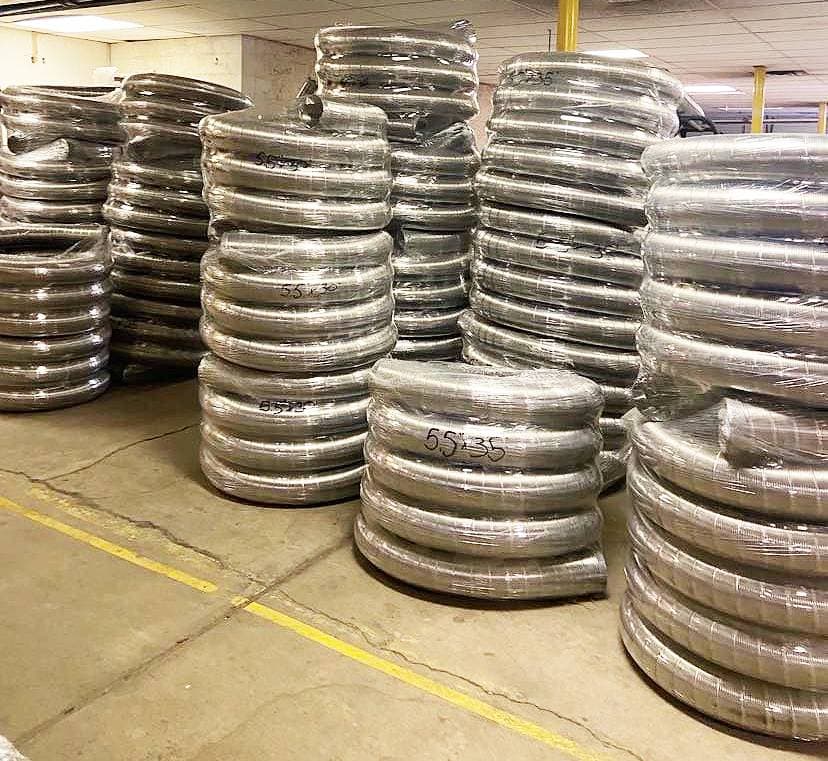Back to Blogs
Rigid Chimney Liner vs. Flex Chimney Liner: Choosing the Right Option for Your Home
July 5, 2023

When choosing between a rigid chimney liner and a flex chimney liner, it’s important to consider factors such as durability, installation ease, fuel type, and chimney structure. Rigid liners offer strength and improved draft but require precise fitting, while flex liners provide versatility and affordability, making them suitable for irregular chimneys. Seeking professional guidance ensures the right liner choice for optimal chimney performance and safety.
When it comes to maintaining a safe and efficient chimney system, one crucial component to consider is the chimney liner. Chimney liners protect the interior walls of the chimney from heat, moisture, and corrosive byproducts, ensuring the smooth passage of gases and preventing potential hazards. Two popular choices for chimney liners are rigid and flex liners. In this article, we will explore the characteristics, advantages, and considerations of both types to help you make an informed decision for your home.
Rigid Chimney Liner:
Rigid chimney liners are typically made from stainless steel, aluminum, or cast-in-place materials. They come in pre-cut lengths and are assembled inside the chimney. Here are some key features and benefits of rigid chimney liners:
a. Durability and Strength: Rigid liners offer excellent durability and strength, making them suitable for various fuel types, including wood, gas, and oil. They can withstand high temperatures and resist the corrosive byproducts of combustion.
b. Improved Draft: Rigid liners promote better draft performance due to their smooth interior surface, allowing for efficient venting of combustion byproducts and reducing the risk of creosote buildup.
c. Longevity: Rigid liners have a longer lifespan compared to flexible liners, making them a cost-effective investment in the long run.
d. Customizable Fit: Rigid liners can be custom-sized to fit specific chimney dimensions, ensuring a precise and snug installation.
Flex Chimney Liner:
Flex chimney liners are constructed from stainless steel and consist of a continuous coil that can be easily inserted into the chimney. Let’s explore some notable features and benefits of flex chimney liners:
a. Ease of Installation: Flex liners are relatively easier to install compared to rigid liners. Their flexible nature allows for easier maneuvering around bends and offsets in the chimney structure.
b. Versatility: Flex liners are suitable for most chimney configurations, especially those with multiple bends or irregular shapes.
c. Affordability: Flex chimney liners tend to be more affordable than their rigid counterparts, making them an attractive option for budget-conscious homeowners.
d. Retrofitting Capability: Flex liners can be installed within existing chimneys, making them a viable option for chimney restoration or renovation projects.
Considerations:
a. Fuel Type: The type of fuel you use in your fireplace or heating appliance can influence your choice of chimney liner. Rigid liners are better suited for higher-temperature applications like wood-burning stoves, while flex liners are more versatile for various fuel types.
b. Chimney Structure: Consider the configuration and condition of your chimney when choosing between rigid and flex liners. Rigid liners may be more suitable for straight chimneys with minimal bends, while flex liners are better for chimneys with tight or irregular spaces.
c. Professional Guidance: It is advisable to consult a qualified chimney professional or technician to assess your specific chimney system and provide expert advice on the most appropriate liner choice.
Whether you opt for a rigid chimney liner or a flex chimney liner, both options have their merits and considerations. The choice ultimately depends on your specific chimney structure, fuel type, and personal preferences. Prioritize safety, efficiency, and compliance with local building codes when making your decision. By selecting the right chimney liner, you can ensure the longevity and optimal performance of your chimney system, providing peace of mind for years to come.
